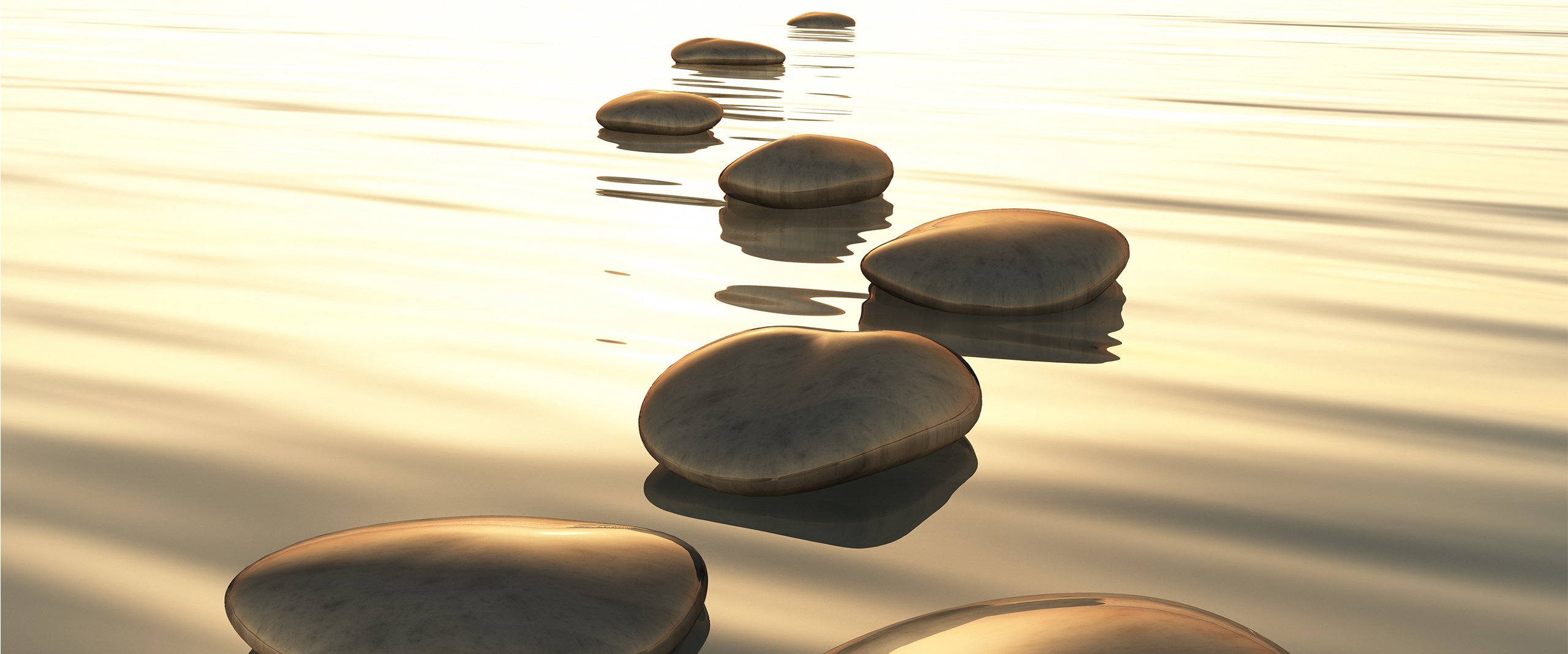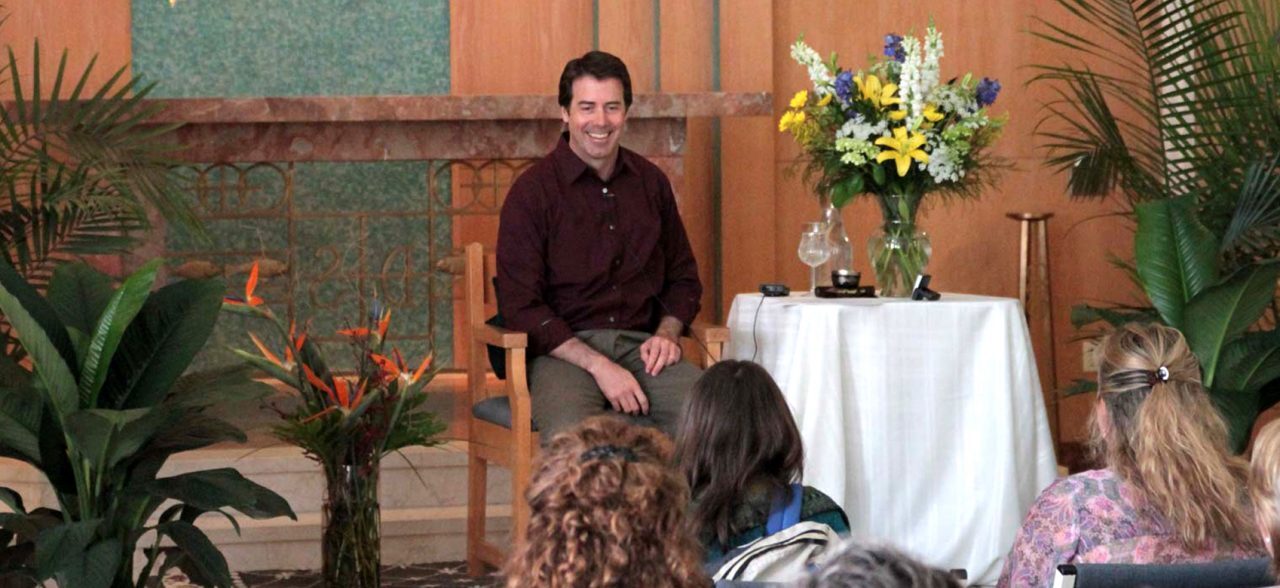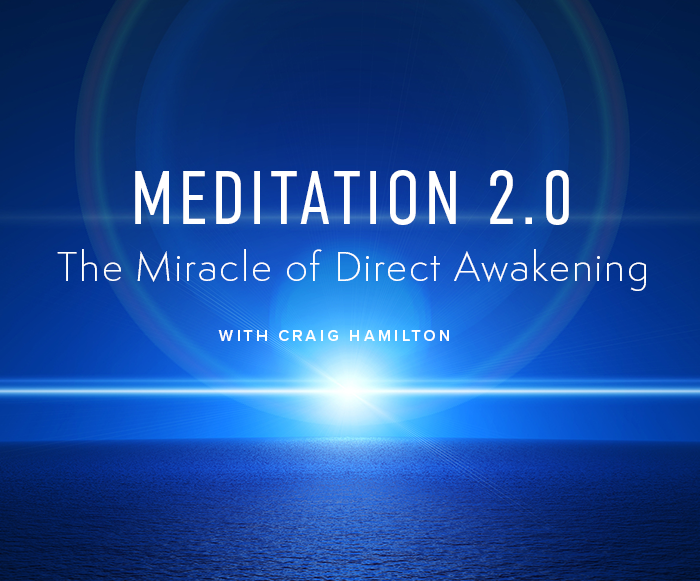Craig Hamilton is a spiritual trailblazer whose innovative approach to transformation is bringing enlightenment down to earth and unlocking the codes to our highest human potential.
Find your next big leap here
FREE EBOOK
Are you making these meditation mistakes?
Everybody makes mistakes. When it comes to meditation, most of us are making five of them. Learn what they are so you can bypass them and go straight to the deep end in my Free Ebook: Unlocking the Power of Meditation

“In all of my years of study, no other approach has had such a powerful impact on my spiritual growth. I am actually changing.”
— MARC R.
“I’m so grateful for this clear teaching and guidance. Stunning shifts all day long. Ever deepening, my heart is full of wonder.”
— JUDY S.
“Since taking Craig’s course, I’ve stopped getting in my own way and my relationships with people, especially in business, have improved dramatically.”
— ROBERT L.
FROM THE BLOG
Does Awakening hold the key to our ultimate potential?
In this 12-week intensive course, you’ll learn a revolutionary approach to meditation that can genuinely open you to the miracle of awakened consciousness, and give you the tools to sustain and deepen this awakening over time.
In this 9-week essential course, you’ll learn how to tap into a limitless source of energy and creativity, and discover the profound meaning and purpose of a life aligned with the impulse of evolution.

MONTHLY MEMBERSHIP
A vibrant support structure to help you express and live your awakening in every moment of your life.
Craig’s ongoing membership program offers tools, training and coaching to support you in activating and sustaining spiritually awakened consciousness.
“This work provides everything I needed to integrate my contemplative spiritual practice with real, purpose-filled action in the world.”
— MARY T.
“For the first time ever I can clearly see the benefits of meditation in my daily life. Every day. These seemingly simple meditations have an incredible effect.”
— TOMAS Z.
“Something deeply transformative is happening that is so subtle I can find no words to express it. It seems like a mystery from beyond.”
— CONNIE P.
WANT TO KNOW MORE? START HERE.
FREE MEDITATION WORKSHOP
Meditation 2.0—The Miracle of
Direct Awakening
Meditation was invented when humans still believed the world was flat. Is it time for an update to this ancient practice? In this free 90-minute workshop, you’ll experience a revolutionary new meditation process that gives you direct access to awakened consciousness.
“These meditations have opened up a whole new world for me. My mood is typically elevated and bright, often causing others to joke about wanting some of whatever I am “on.”
— SUSAN F.
“I’ve studied Buddhism for ten years and probably tried every form of meditation under the sun, but I’ve found no more powerful meditation than these practices that Craig offers.”
— JEFF S.
“I sense this ongoing meditation flow around me even when I’m not formally meditating and I love that I now have the tools to step into that flow at will.”
— DENISE A.
ABOUT
Craig Hamilton
Craig Hamilton is a pioneering spiritual teacher whose refreshing, contemporary approach to authentic awakening is redefining the spiritual path for a new era.

Craig Hamilton is a spiritual trailblazer whose innovative approach to transformation is bringing enlightenment down to earth and unlocking the codes to our highest human potential.
With more than 16,000 graduates to date, his in-depth online courses have transformed the lives of seekers in over 85 countries worldwide.
These courses offer practical spiritual tools and training that are in step with our times and informed by an up-to-date understanding of the human condition. In this unique training ground, Craig brings together core insights and approaches based on decades of on-the-ground research at the leading edge of spiritual practice and inquiry.
Craig began his spiritual journey in the ashrams and monasteries of the East, but ultimately found himself at the forefront of consciousness research in the West, playing a key role in a series of contemporary laboratories of conscious evolution.
It was in these cutting-edge spiritual experiments that the key insights that inform his work took shape. He has personally logged over 18,000 hours of meditation, including multiple intensive retreats, the longest of which was six months in duration.
Craig’s programs integrate his decades of intensive spiritual practice with insights gleaned during his eight years as Senior Editor of the award winning What Is Enlightenment? magazine.
He is a founding member of Ken Wilber’s Integral Institute, a member of the Evolutionary Leaders Forum, and was a participant in the Synthesis Dialogues, a 35-person interdisciplinary think tank presided over by His Holiness the Dalai Lama.
He is considered by many to be a “teacher of teachers” and counts several of today’s leading spiritual luminaries among his students.
NEWSLETTER
Stay Connected
Subscribe to Craig’s weekly Awakened Life Newsletter to receive his latest inspirational teachings and guided meditations.








